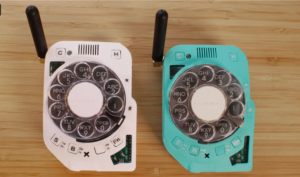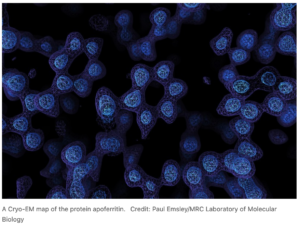Cory Booker’s speech to the US Senate
This is a truly extraordinary speech. I’ve never heard anything remotely like it from a politician. It’s long, but it’s well worth it. It captures, like nothing else I’ve heard, the experience of growing up black in America.
Senator Booker starts speaking just 35 seconds into the video.
Many thanks to the kind reader who alerted me to it.
Thinking the unthinkable: will the US get to vote in November?
I thought I was the only one who worried about this. But now here’s Sue Halpern, writing in the New Yorker:
Monday night, as a group of white men wielding baseball bats marched down the streets of Philadelphia, apparently with the blessing of local police, I reread [Timothy] Snyder’s warning to be wary of paramilitaries. “It is impossible to carry out democratic elections, try cases at court, design and enforce laws, or indeed manage any of the other quiet business of government when agencies beyond the state have access to violence,” he wrote. “For just this reason, people and parties who wish to undermine democracy and the rule of law create and fund violent organizations that involve themselves in politics.” In a leaked recording obtained by the Intercept in April, Republican operatives can be heard hatching a plan to send retired Navy SEALs to keep watch on polling places, now that a ban on recruiting soldiers and law-enforcement personnel to oversee voting was lifted by a judge in 2018. (The ban was in response to earlier efforts by the Republican National Committee to send uniformed poll watchers to intimidate African-American voters.)
Trump and his allies know that their best chance of winning is to suppress turnout, especially among African-Americans.
That is what the Attorney General, William Barr, believes based on his gross exaggeration of the risk of voter fraud. So, too, many Republican governors and state legislators who are making it increasingly difficult for Americans to vote. And—let’s not forget—Trump himself. In the 2016 election, one arm of the Trump campaign was dedicated to convincing people—black folks and young people particularly—not to bother voting. This was in tandem with the efforts of Republican secretaries of state and other elected officials to enact draconian voter-registration requirements and redraw electoral maps, making it more difficult for people to vote. Or, if they did manage to cast ballots, to insure that their voices would be drowned out. These efforts persist, and, in the midst of the coronavirus pandemic, they have escalated, as the Attorney General floats a phony argument that foreign governments might manipulate mailed ballots, and the Republican National Committee, following the lead of the President, is working to limit voting by mail because it believes mail ballots would extend the franchise to the “wrong” people. Add to this Trump’s attacks on the U.S. Postal Service, which recently saw the installation of one of his ideologues as its head; as the President knows, a working postal service is necessary to facilitate mailed ballots.
I hope this doesn’t work. I fear that it might.
Britain’s amateur government
From Politico analysis.
A time of crisis, former U.K. Prime Minister Gordon Brown once said, is “no time for a novice.” If that’s the case, then coronavirus came at a bad moment for Boris Johnson’s Cabinet.
Despite the Conservative Party having been in power for 10 years, the average member of the ministerial team leading the U.K. through its worst public health crisis in a century has just 19 months of Cabinet-level experience. Fourteen out of the 22 have been in Cabinet less than a year, and only one — the influential Whitehall fixer Michael Gove — is a veteran of David Cameron’s first Cabinet a decade ago.
Such inexperience is unusual in a government led by the same party for so long. One of the main causes? Brexit. The Tory Party’s civil war over EU membership and the Brexit deal ended or derailed the political careers of a string of senior politicians who in less fractious times would — in all likelihood — still be in top jobs.
What do you expect from a Cabinet where the entry criterion was being wrong on the most important issue since the end of the war?
Just what you’ve always needed — a rotary-dial mobile phone
Earlier this year, Justine Haupt revealed a custom cellphone she built that eschewed unwanted battery-killing distractions like a touchscreen. In its place was an old-school rotary dial for placing calls, and while it looked antiquated, there were apparently enough people as fed up with the state of modern smartphones that Haupt has created a new version that she will actually build and sell.
Haupt is currently developing a “mark 2″ version of the design that will be available as a ready-built device for those who don’t know the first thing about soldering. In addition to an upgrade from 3G to 4G which ensures the right networks will be active for at least another 10 years, the new version will include a larger electronic paper display, newly manufactured rotary dial parts instead of old salvaged hardware, and an SD card slot allowing a contact list to be added by just uploading a text file full of names and numbers.
Sweet. Once upon a time, children, all phones were like this. And they were tethered to the wall — like goats.
Revolutionary microscopy technique sees individual atoms for first time
Wow!
From Nature.
A game-changing technique for imaging molecules known as cryo-electron microscopy has produced its sharpest pictures yet — and, for the first time, discerned individual atoms in a protein.
By achieving atomic resolution using cryogenic-electron microscopy (cryo-EM), researchers will be able to understand, in unprecedented detail, the workings of proteins that cannot easily be examined by other imaging techniques, such as X-ray crystallography.
The breakthrough, reported by two laboratories late last month, cements cryo-EM’s position as the dominant tool for mapping the 3D shapes of proteins, say scientists. Ultimately, these structures will help researchers to understand how proteins work in health and disease, and lead to better drugs with fewer side effects.
“It’s really a milestone, that’s for sure. There’s really nothing to break anymore. This was the last resolution barrier,” says Holger Stark, a biochemist and electron microscopist at the Max Planck Institute for Biophysical Chemistry in Göttingen, Germany, who led one of the studies
Cryo-EM won Robert Richard Henderson of the Molecular Biology Lab in Cambridge a share in the Nobel Prize for Chemistry in 2017.
Correction: Thanks to Jon Barnard for spotting that I got Richard Henderson’s first name wrong.
Make sure your Twitter avatar is recognisable
Fascinating story from Quentin’s blog:
Yesterday, while on a video call, I fired up Twitter to check something, and amongst the stream of inconsequentialities, something jumped out at me: a tweet, just half an hour before, from my friend Lucy Jones saying that her father had died that morning, and how devastated she was.
I was shocked, not least because Lucy was actually on the call with me at that moment. I gasped, and was about to express my deepest sympathy and apologise that we were bothering her with trivia (while secretly wondering, a bit, why she still looked her normal cheery self in the little video window?)
And then I realised that there was something a bit strange about the tweet, and as I peered more closely at the avatar/icon, I realised it didn’t look at all like Lucy!
Well, it turned out that it was actually a retweet, by a friend of mine, of a post by a different Lucy Jones. He only knew one Lucy Jones, I only knew one, but it turned out we knew different ones, and Twitter had injected his Lucy’s news into my news stream. All of which would have been terribly confusing if it hadn’t been for the photos the Lucies had uploaded to their repective Twitter accounts.
So please, people, unless you are blessed with a particularly unusual name, do make sure your online accounts have a useful avatar associated with them. And no, a picture of you as a lovely bouncing baby doesn’t count: it’ll only be recognised by your parents and they’ll probably know whether or not it’s you. Especially if you’re announcing their sudden demise.
Quarantine diary — Day 76
This blog is also available as a daily email. If you think this might suit you better, why not subscribe? One email a day, delivered to your inbox at 7am UK time. It’s free, and there’s a one-click unsubscribe if your decide that your inbox is full enough already!



